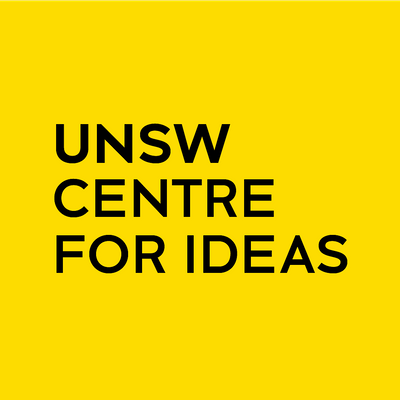 Discover the secrets to surviving and thriving in an unpredictable world.
Discover the secrets to surviving and thriving in an unpredictable world.About this Event
Athena Aktipis | Rob Brooks
Spend a few minutes scrolling through your social media newsfeed and you’d be forgiven for thinking we’re in the midst of an absolute apocalypse. There’s a cost of living crisis, a housing crisis and of course, the looming climate crisis. So how do we go about thriving in the face of impending doom?
Evolutionary biologist Athena Aktipis has the answers. From overcoming fear to making smart decisions based on history and human psychology, Aktipis offers a fresh perspective on navigating our multi-apocalyptic reality. In conversation with UNSW’s Rob Brooks, Athena will delve into the wisdom of small-scale societies and the invaluable lessons on managing disaster risks through cooperation, community, and yes, even playfulness. In one evening, discover how being prepared can not only help us weather the storm but also enrich our lives in unexpected ways.
This event is presented by the and as a part of .
Live Event & Venue Information
The Roundhouse is located at UNSW Sydney's Kensington Campus. Please note this is a live event only, and will not be available via livestream.
Access
Wheelchair Access
The closest accessible drop off point to the Roundhouse is the north entrance via High Street, Gate 2, follow the road to Third Avenue and turn onto 1st Avenue West. More information on getting there can be found via our interactive accessibility map available here.
Assisted Listening
The Roundhouse has a hearing loop. Patrons wishing to utilise this need to simply switch their hearing aid to the T (Telecoil) setting to pick up on the wireless signal.
Auslan & Captioning
Auslan interpreting services and/or live captioning can be provided for selected talks upon request.
Contact
To book and discuss access services, please call the Centre for Ideas on 02 9065 0485 or email [email protected].
Parking & Public Transport
The Roundhouse is easily accessible via public transport and the closest light rail stop is UNSW Anzac Parade (L3 line). For more information, call the Transport infoline on 131 500 or visit transportnsw.info.
Free parking is available from 5.30pm in the Western Campus Car Park. For access to free parking, event patrons must park in the UNSW Permit Holder bays. The Western Campus Car Park is located here, on Anzac Parade next to NIDA. This car park can be accessed via the Western Campus Drive through Day Avenue.
Paid casual and visitor parking is offered via the CellOPark App and ‘pay by plate meters’ in all other UNSW car parks. For more information head here.
Contact
For all the other enquiries, please email [email protected] or call the Centre for Ideas on 02 9065 0485.
The Centre for Ideas is happy to receive phone calls via the National Relay Service. TTY users, phone 133 677, then ask for 02 9065 0485. Speak and Listen users, phone 1300 555 727 then ask for 02 9065 0485. For more information on all other relay calls visit here.
Speakers
Athena Aktipis
Athena Aktipis is a cooperation theorist, evolutionary biologist, and cancer biologist working at the intersection of these fields. As well as researching cooperation in humans, particularly in times of need, she studies other systems that are governed by fundamental tensions between cooperation and conflict. Aktipis is an associate professor in the Department of Psychology at Arizona State University, co-director of The Human Generosity Project, co-founder and incoming president of the International Society for Evolution, Ecology and Cancer, and the director of ASU’s Cooperation and Conflict Lab. Aktipis is also a prolific science communicator—she is the host of The Zombified Podcast and the producer of two educational livestream channels: Channel Zed and Cooperation Science Network. Her recent books are A Field Guide to the Apocalypse: A Mostly Serious Guide to Surviving Our Wild Times and The Cheating Cell: How Evolution Helps Us Understand and Treat Cancer.
Rob Brooks
Rob Brooks is Professor of Evolution at UNSW Sydney and a popular science author. He has spent his career understanding the complexities and conflicts that sex and reproduction bring to the lives of animals, including human animals. His popular writing explores the murky confluence of culture, economics and biology, and how new technologies interact with our evolved minds and bodies. He has won the Queensland Literary Award for Science (for his first book Sex, Genes and Rock ‘n’ Roll), and the Eureka Prize for Science Communication. His articles have been published in Psyche, CNN, The Atlantic, The Sydney Morning Herald, Areo, and many other publications. His latest book Artificial Intimacy: Virtual Friends, Digital Lovers, and Algorithmic Matchmakers considers what happens when new technology collides with our ancient ways of making friends, growing intimate, and falling in love.
Event Venue
Roundhouse, (E6), Kensington, Australia
AUD 0.00







